The Sterling Brown settlement “is more for the people”
In a series of spelling and grammar error riddled late night Facebook messages about the Sylville Smith settlement and referencing the Sterling Brown incident, new Milwaukee City Attorney Tearman Spencer accused the city of failing previously to “settle with the black man” and stressed that the Smith settlement was coming in the midst of a climate “fill (sic) with justice for black lives!”
In another message, Spencer, who admitted to us that he wrote the messages, responded to the upset constituent, “If you ask why are black people still at the level they are ‘think about it.’ We have a long way to go and I’m going to do my part!”
After Tearman Spencer repeatedly brought up race in the messages, the constituent who gave them to us asked Spencer, regarding the Smith settlement, if he sees “this offer as a way of making things right for black people our people who have not received justice? Like reparations.”
He responded: “No, this money is just for the wrong cause by one incident.. we as a people need change and it’s coming..the Sterling Brown matter is more for the people…but everything that’s done helps a little…” (Spencer is in gray below).

Spencer cast the Smith settlement decision as fitting with his belief that level-headed minds are needed to “help fight this fight” to correct past wrongs “that has (sic) been perpetrated on many of this city’s citizens.”
It was revealed on November 9 that Spencer is now also proposing that the city settle the Brown matter for $750,000. That comes on the heels of the $4 million settlement with the family of Smith, who had a gun in hand when he fled the police officer who shot him.
We showed Tearman Spencer’s messages to Dale Bormann, Jr., the president of the Milwaukee Police Association, which represents rank-and-file officers, and asked for his reaction. “The role of the city attorney in the City of Milwaukee is to protect officers when something occurs that they did correctly,” Bormann said. “If the city attorney’s office is not going to stand up and protect the officers …then that will end up being detrimental to the officers. We’ve received several phone calls from officers saying, ‘Why is he just giving in?'”
Bormann said the Smith case was “an important first case for him (Spencer)” but “he’s really showing who he wants to be.” He was concerned that Spencer repeatedly brought up race as a motivation in his Facebook messages. He said the city attorney should decide whether to settle cases “on the merits. It has nothing to do with whether you’re white, black, blue, green, yellow or whatever.” He said that Spencer is supposed to be “factual” but was playing the “race card” instead.
Spencer offered a contrary view about police in the messages.
“Why was so many officers found not guilty of killing so many black men when it was obvious that the action did not constitute self defense?? There are many questions that you should ask and there is much information…to receive,” wrote Spencer to the upset constituent who criticized his recommendation that the city settle with Smith’s family for $4 million. The messages occurred before Tearman Spencer announced the Brown settlement but made it clear that was looming.
He also wrote that he thought the city needed a corruption division but “this is not the time…there is no money… and there are too many people involved.. that don’t want to be uncovered…we have to concentrate on changing the culture over time. Remember we didn’t get here overnight. 40-50 years in the making and it’s going to take time to change.”

He added, “The victim (Smith) was not an upstanding citizen…but when I try to save the city $10 million dollars ‘in your words’ I’m the villain, making stupid decisions and don’t deserve your vote. You need to look closer at the counsel (sic) and the Mayors (sic) office and ask why are they so against me for trying to correct the problems that causes (sic) the law suites (sic) in the first place…”
He said the corruption makes it hard for him to sleep.
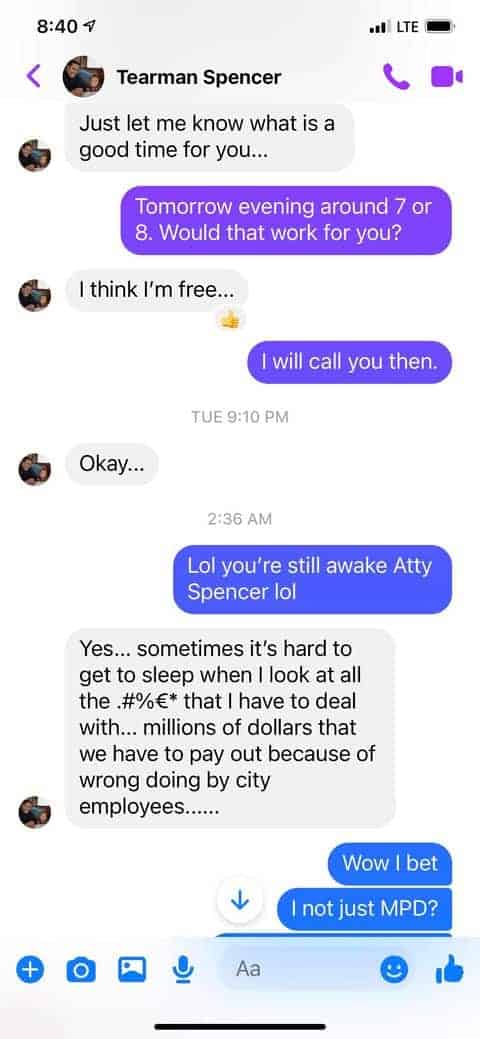
Spencer, a close ally of Congresswoman Gwen Moore, is an attorney who ousted long-time Milwaukee City Attorney Grant Langley in the last election. He is the city’s first black city attorney. We know the identity of the constituent and confirmed the authenticity of the messages; the person lives in the City of Milwaukee.

In another message obtained by Wisconsin Right Now, Spencer told the constituent: “Why are they upset about me recognizing that all lives matter including ‘Black lives’..We are so quick to condemn our people when we try to do what’s right for them. And if you ask why are black people still at the level they are ‘think about it.’ We have a long way to go and I’m going to do my part! That’s why I was elected…I’m going to do what they untrusted (sic) me to do! I fight for the betterment of all not the one. By the way, I will be the voice for those who do not have a voice… please direct your anger where it belong (sic).”
We Called Tearman Spencer to Ask About the Messages

We reached out to Spencer to ask about the messages, and in an hour long phone interview with us, he claimed the messages were “private.” He insisted the Smith settlement was “done in the best interest of the city” because the “views of legal experts” was that the city might end up paying more “in light of the climate we’re in right now,” citing the Breonna Taylor case in Kentucky. He wouldn’t name the experts.
In a letter explaining the proposed settlement with Brown, a Milwaukee Bucks player, Spencer gave a very different rationale than that imparted in the private messages; he said that he was trying to avoid trial and acting on the advice of a mediator. The proposed settlement “contains an admission of a constitutional violation and a commitment to incorporate changes to Milwaukee Police Department Standard Operating Procedures,” the letter states.
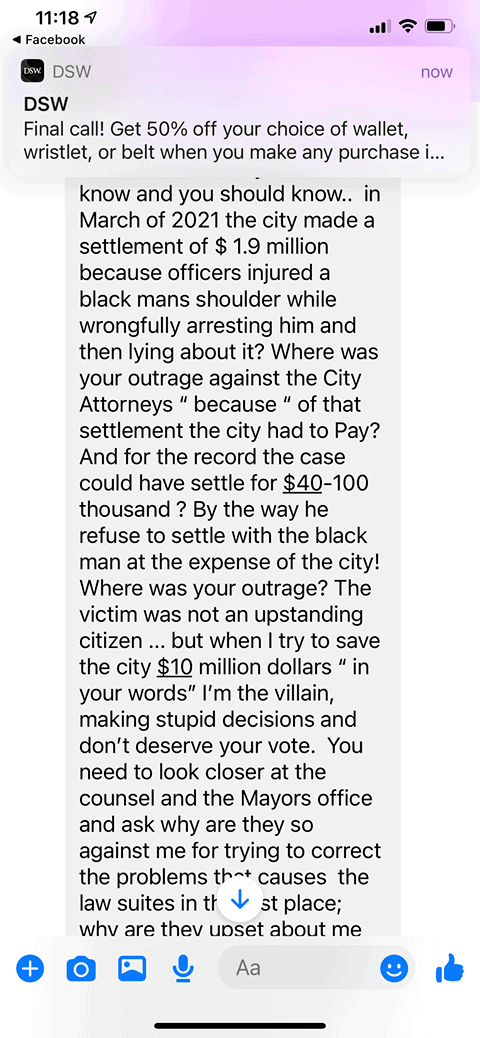
His earlier comments, which were made via instant messenger to the constituent who provided them to Wisconsin Right Now, indicated that he sees his role as Milwaukee’s city attorney as righting past racial wrongs. However, in the interview, he denied this was the case. He called the Smith settlement a “hard pill to swallow.” He denied that race influences his decisions, saying, “It’s important for all of us in the human race to get together; it’s not a black thing, it’s a people thing,” and declaring, “all lives matter.”
Asked why he’d settle a case where the officer was acquitted by a jury, Spencer compared the Smith shooting to the OJ Simpson case and said civil and criminal standards are different.
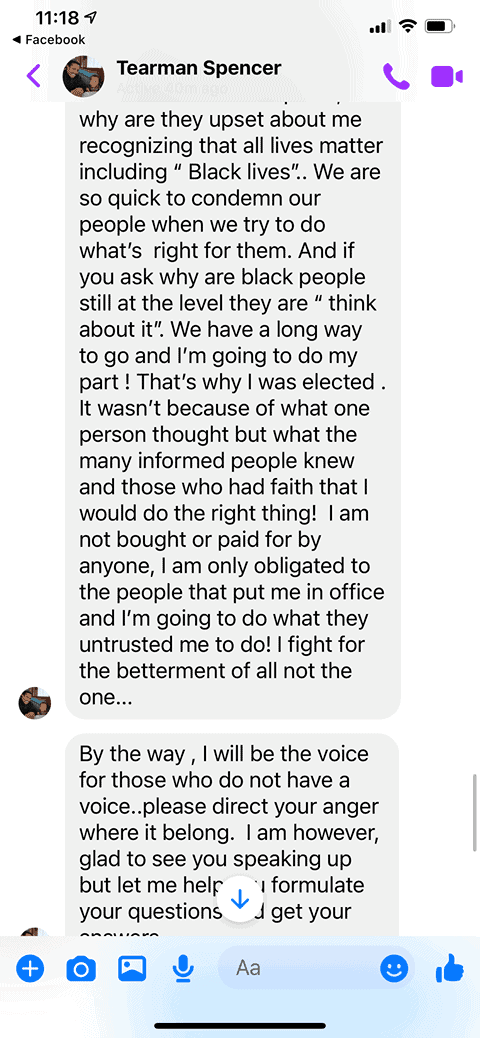
Of the Brown settlement, he said in the interview with us, “Our job is not to add fuel and flames to the current situation, but try to be fair and just in our decision.” He added, “I’m black. I grew up in Milwaukee. I got to look at things from the lens of a black man first, but I’m a Milwaukeean.”
In the phone interview with us, Spencer denied that race influences his decisions as city attorney, saying, “It’s a city thing. It’s not a black-and-white thing. Race has nothing to do with anything other than the fact the perception people do not feel safe when they encounter officers. Ask why that impression is there, that has to be overcome.” He claimed, “I think the majority of officers do an excellent job” and said every profession has “bad apples.” He added, “I believe in policing. We should support our police officers with all of our might.”
Spencer told us his job “is not to protect wrongdoers. Everyone deserves a vigorous defense…However if we premeditatedly go out and commit a crime, do you expect the city to absorb the repercussions of doing that? Is it fair to the city?”
In our interview with him, Spencer reiterated the background of Smith wouldn’t “get into court” but the behavior of the officer would. “It has nothing to do with what I think. It has to do with what you get in court,” he said. “I’m going to explain it again. You can’t get those things into trial.” He said the “bad behaviors and histories of the officer involved” made the city’s case a problematic one. “Are you a lawyer, ma’am?” he asked. “Miss jury, Miss judge, Miss lawyer.” Asked whether the fact that Smith fled an officer with gun in hand would make the case more favorable to the city, he said the officer’s history made the totality of the case a tough one for Milwaukee. “It’s about doing what’s right for the city,” he said. “I’m always going to be on the side of justice.” He said of Smith, “I understand people tell me he was not a very good person.”
Of the officer, he said, “You might want to question whether he should have been on force, what was his history, what was process of hiring this guy, is this going to be let into court.”
We reached out to Marquette University Law Professor Daniel Blinka, a former prosecutor, to ask if Spencer is right that former Officer Dominique Heaggan-Brown’s history would come in to a jury. He said he believed so because an alleged comment the officer made shortly after the shooting might provide the linkage needed between behavior and incident to come in. According to CBS, Heaggan-Brown “bragged about being able to do whatever the defendant wanted without repercussions.”
Bormann disagrees with Spencer’s decision in the Smith case.
Of Smith, Bormann said: “The individual who was unfortunately shot and killed by our officer was in possession of a gun; he ran from uniformed officers. At that point when he got cornered in a yard his gun was seen by the officers…What bothered me the most (about the messages) is that Mr. Spencer is not doing his job. He is trying to state things like black lives and things like that, and it appears he is trying to do everything possible to just pay people out rather than fight. There is no way a jury was going to give the family $10 million or anything like that for what took place.”
More Messages by Tearman Spencer
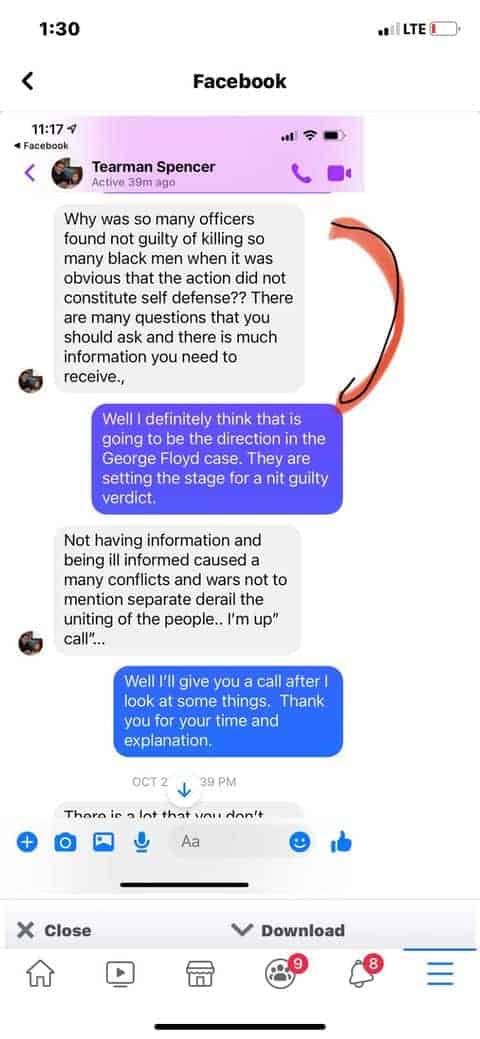
Tearman Spencer is gray in the messages above, and the constituent’s comments are in blue.
Spencer acknowledged that Smith, who was armed and had a previous gun-related conviction and was previously a shooting suspect, was not an “upstanding citizen” but accused the mayor and Common Council of being “against” him. The officer in the shooting was acquitted by a jury of any wrongdoing in the shooting of Smith, who had fled police and was armed with a gun.

He asked the constituent, “I wounded (sic) if you were this inquisitive with your last City Attorney or you (sic) other elected officials?”
Tearman Spencer stated that it was “highly probable” that we “could not successfully defend such an Action (sic) based on the set of facts and ‘the People’ involved, as such my recommendation then would still be my recommendation today, that is, not to expose the city to a $10-$12 million settlement Verdict. The city could used (sic) the 8-10 million dollars for, eduction (sic), infrastructure repair or the like.”
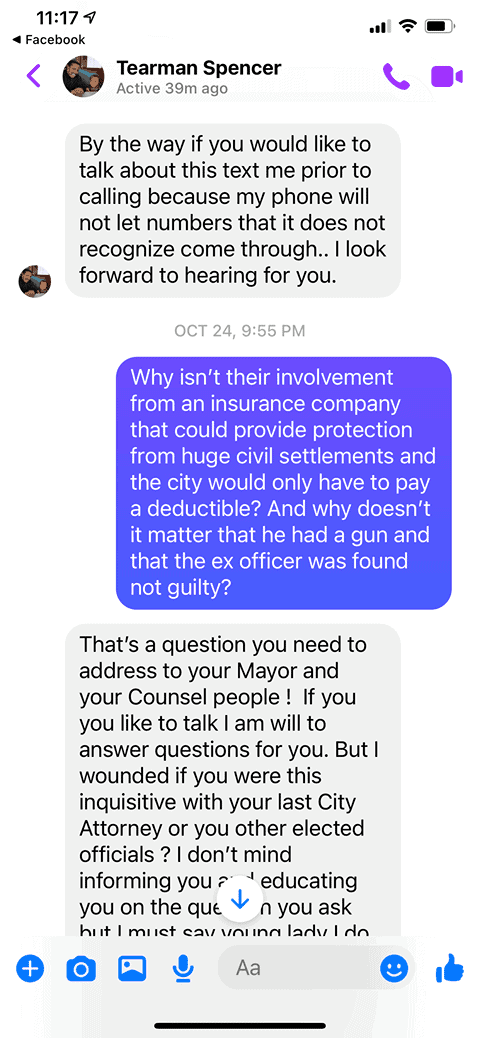

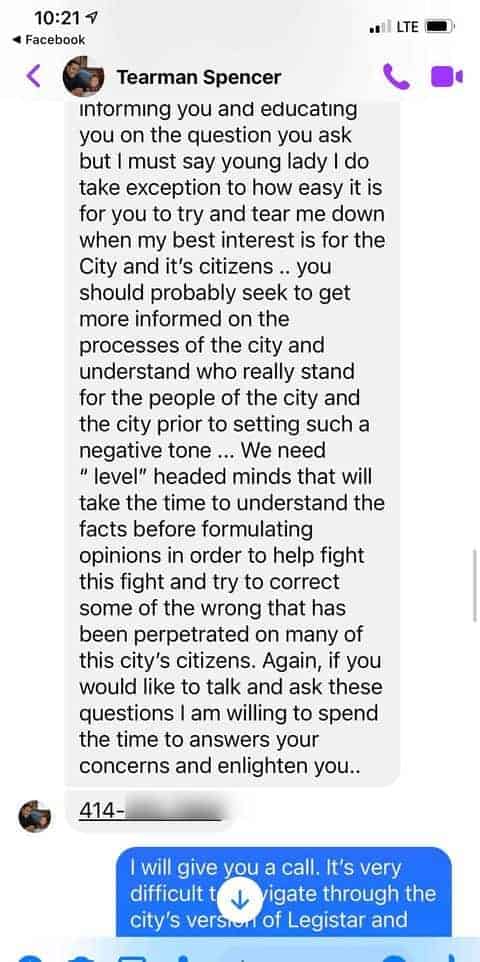
He continued in the messages:
“…I must say young lady I do take exception to how easy it is for you to try and tear me down when my best interest is for the City and it’s (sic) citizens… you should probably seek to get more informed on the processes of the city and understand who really stand (sic) for the people of the city and the city prior to setting such a negative tone…We need ‘level’ headed minds that will take the time to understand the facts before formulating opinions in order to help fight this fight and try to correct some of the wrong that has been perpetrated on many of this city’s citizens.”

The constituent asked, “What wrongs done to our people do you hope to settle in your role as our city attorney?”
“I’m going to do (sic) all that I can’t (sic) and call it what it is! I’m not going to allow them to hide behind lies… ‘I am going to do the right thing’ by the people for the people…if someone wrong you, I’m helping you… I’m not going to protect the wrong doer…it’s about justice…but what some people call justice isn’t justice. Their idea of justice is based on what they understand justice to be.”
Tearman Spencer wrote, “Whether you agree with me or not or all the other legal minds that went into the cities (sic) position and decision to settle this matter, is clearly up to you. But I must say it is not beneficial to all the young minds and people of the city to hear Such (sic) a position without first ascertain (sic) more facts. Now if you like to go over this again or speak in detail I will surely provide you my phone number so that you can call me.”
“Not having information and being ill informed caused a (sic) many conflicts and wars not to mention separate derail the uniting of the people..I’m up ‘call’…”
Tearman continued at 10:39 p.m. on Oct. 24:
“There is a lot that you don’t know and you should know.. in March of 2021 (sic) the city made a settlement of $1.9 million because officers injured a black mans (sic) shoulder while wrongfully arresting him and then lying about it? Where was your outrage against the City Attorneys ‘because’ of that settlement the city had to Pay (sic)? And for the record the case could have settle (sic) for $40-100 thousand? By the way he refuse to settle with the black man at the expense of the city! Where was your outrage?” Tearman Spencer appears to refer to former Milwaukee City Attorney Grant Langley.
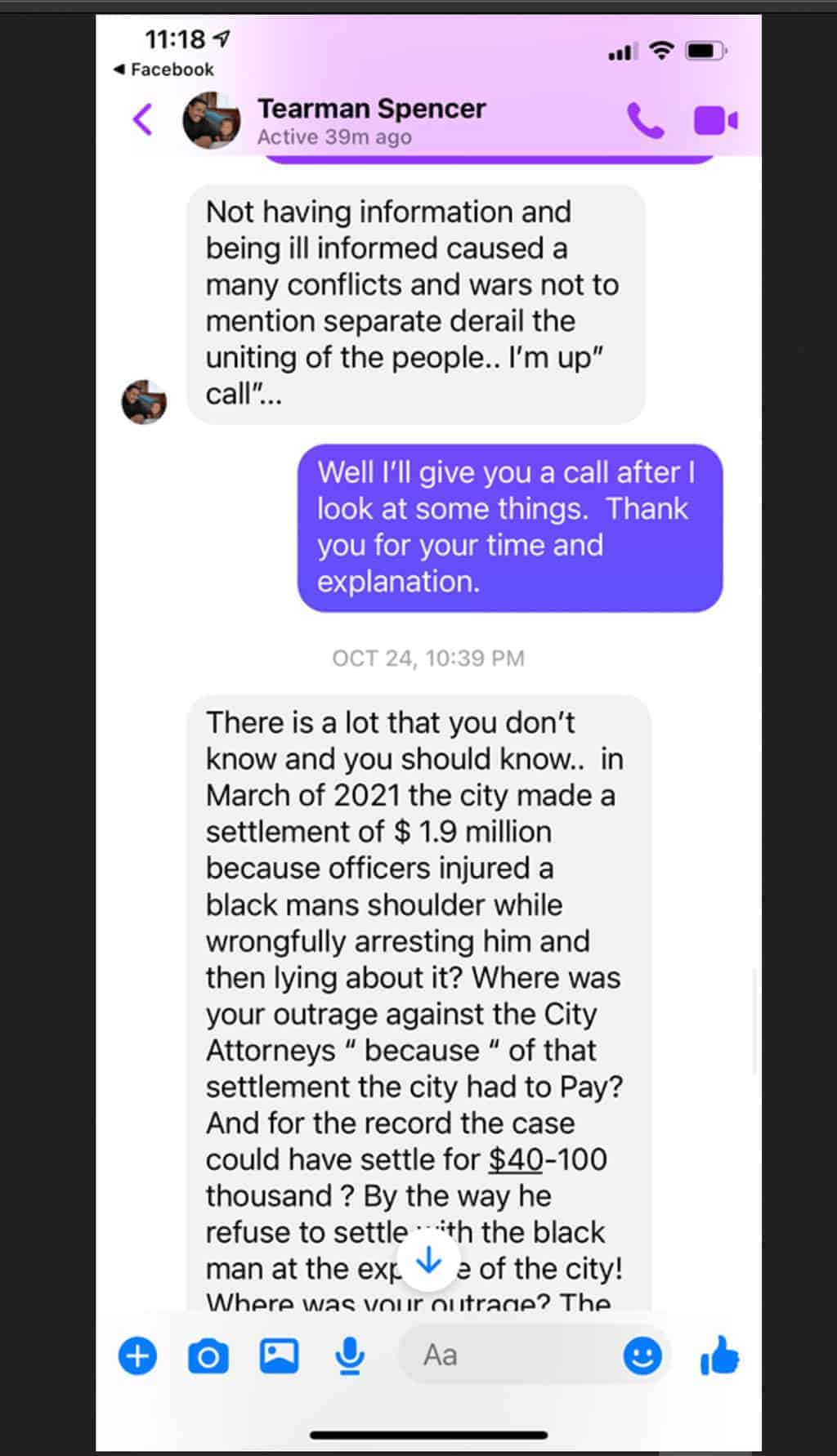
Tearman Spencer explained, “By the way, I will be the voice for those who no not have a voice… please direct your anger where it belong (sic). I am however glad to see you speaking up but let me help you formulate your questions and get your answers.”
The citizen promised to call.
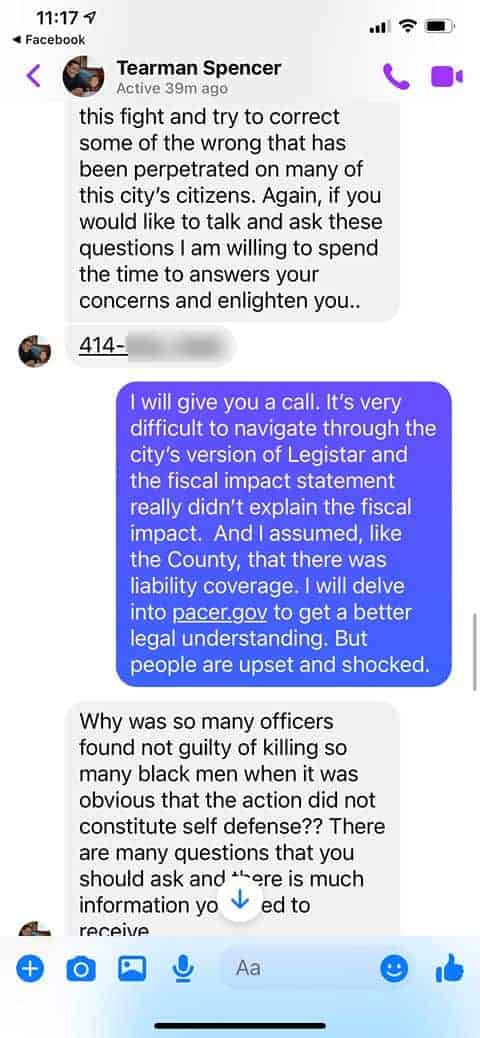
He added, “There are many cases you probably do t (sic) know about… but it’s been going on. ‘and don’t forget they want you to think I’m causing the city the problem…remember thus (sic) happened two years ago and we didn’t have a climate fill (sic) with justice for black lives….’ the city maybe could have settle this cars (sic) for a lot less then…they know then they could not win in court…Others took time to understand what I ran on and what changed (sic) I felt the city needed to make. By the way check to see how long some of the other elected officials has (sic) been there. Don’t be surprised if you see others whom have been in office 16, 20 and 30 years!”
In other instant messages, he provided his phone number.
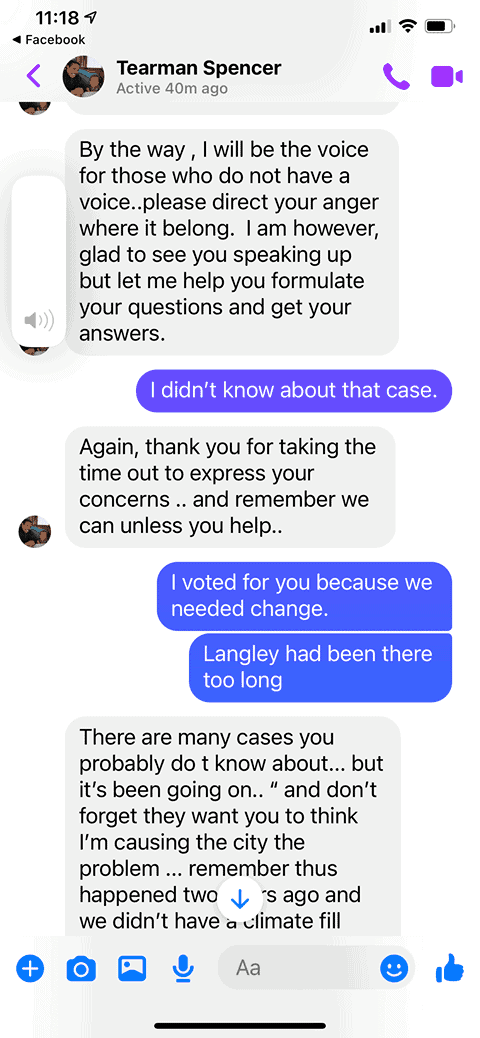
Tearman Spencer told the constituent that an officer’s “history comes into court and can be taken into consideration by the jury. (so it would have been prudent for you prior to formulating your opinions understanding the background of these offices (sic). Let’s just recap that again:so (sic) that I’m not explaining this stupidly. ‘The bad deeds, History (sic) and behavior of the alleged victim/claimant are not allowed to be considered in such a trial.’ Further, less (sic) now take into consideration the climate of the atmosphere in our community and the country at large, since the Floyd incident, the incident in Kenosha add the settlement for Brianna (sic) in Kentucky; The City of Milwaukee exposure to such a case like the Smith matter has been estimated that it could cost the city of Milwaukee in the neighborhood of $10-$12 million dollars if we Could (sic) not prevail in court.”
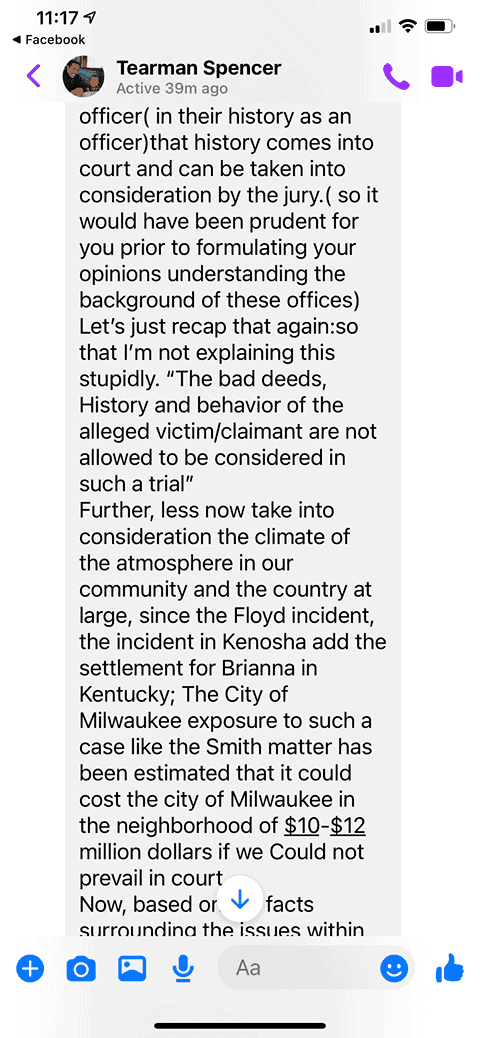
Tearman Spencer also wrote, “First you reference that Mr. Smith was not innocent and not the most upstanding citizen in Milwaukee. As to that point you will not get any argument from me. In addition, will also agree with your analysis in comparing the Hamilton and Lacy case; they are indeed different; however, I would like to point out the single most relevant similarity, they all involved police questionable conduct.”
He claimed that a court “doesn’t not and will not ‘take into consideration the prior history of the ‘deceased/alleged victim.’..I going to make it unequivocally clear for you! The background of the claimant would not be allowed into the courts (sic) consideration or to be entered into the court proceeding or records. Now, Understand that the police involved, their background and history would be allowed into consideration to be used against the city/state.” The officer, Dominique Heaggan-Brown, was convicted of separate sexual assault charges unrelated to the shooting.
The DA charged Heaggan-Brown with homicide but a jury acquitted him. The criminal complaint said video “shows Smith slip to the ground as he approaches a chain link fence between two houses. The video shows Smith rise back to his feet with the gun still in his right hand and Smith turns his head and upper body towards the officers. He then raises the gun upward while looking in the direction of the officers and throws the gun over the fence into the yard. Smith’s firearm was not discharged.” Essentially the DA argued the first shot fired by Heaggan-Brown was justified but the second not.
“While Smith raises his gun upward, P.O. Heaggan-Brown discharges one shot from his service weapon at Smith and Smith falls to the ground on his back. It was later determined that Heaggan-Brown’s first shot struck Smith in his right bicep area with the bullet passing through Smith’s bicep and lodging in a window casement to the east of the shooting. After going to the ground, Smith was unarmed,” the complaint stated.
Heaggan-Brown was later convicted of sexual assault after allegations arose that he “had sex with an intoxicated man with whom he watched the August 2016 unrest on television” that erupted after the shooting, according to Fox 6.
Table of Contents

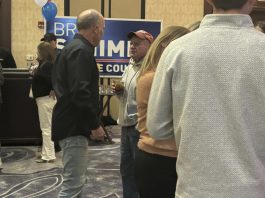




![WATCH: Elon Musk Town Hall Rally in Green Bay [FULL Video]](https://www.wisconsinrightnow.com/wp-content/uploads/2022/04/Elon_Musk_3018710552-265x198.jpg)



![The Great American Company [Up Against the Wall]](https://www.wisconsinrightnow.com/wp-content/uploads/2025/03/MixCollage-29-Mar-2025-09-08-PM-4504-265x198.jpg)
![The Wisconsin DOJ’s ‘Unlawful’ Lawman [WRN Voices] josh kaul](https://www.wisconsinrightnow.com/wp-content/uploads/2025/03/MixCollage-29-Mar-2025-08-48-PM-2468-265x198.jpg)
